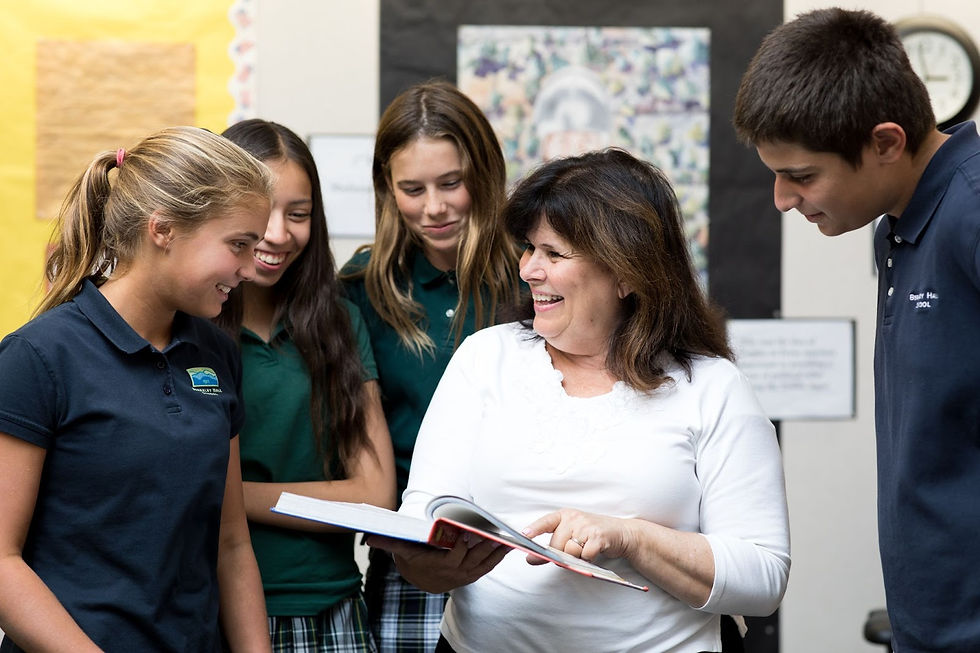A Commitment to Character
- BHS
- Mar 21, 2024
- 2 min read
Updated: Oct 21, 2024
At Berkeley Hall School, we use restorative practices as an alternative approach to address student behavior. This is part of our focus on supporting our students’ academic growth and their social and emotional well-being as well. It is an integral aspect of our commitment to character development in our students’ educational journey.

What are Restorative Practices?
In a recent presentation, our administrators discussed how these practices are a healing, alternative approach to addressing conflict. They bring together those who have a part in an offense to collectively identify and address harms, needs, and obligations for restoring harmony. This process focuses on community-building and relationships.
Restorative practices are a framework designed to address conflict in a way that prioritizes repairing relationships. Rather than traditional punitive consequences, the focus is on understanding the impact of actions, taking accountability, and finding ways to make things right.
Restorative Practices in Action
Our faculty and administrators understand that when working in a community, issues can come up. When disagreements or misunderstandings arise, we use these practices, guided by our core values, to bring about healing and harmony.
Community Building Circles: Regular class time that is built into the school schedule to offer students a safe space to share their feelings, build connections with other students, and develop positive communication skills. These come before disagreements and misunderstandings arise.
Restorative Conversations: If a student's actions negatively impact others, a facilitated restorative conversation takes place. This process focuses on understanding how those actions were harmful and exploring solutions that rebuild trust and restore the relationship.
Making Amends: Students are encouraged to think beyond apologies and consider meaningful ways they can take responsibility for their actions and work on repairing any damage that they may have caused.
Benefits for Students
Restorative practices play a crucial role in aligning with our school's mission. When students learn essential skills like conflict resolution, empathy, and accountability, they become:
Fearless Scholars: Within a safe and supportive environment, students feel comfortable taking appropriate risks in their learning, knowing that mistakes are opportunities for growth.
Conscientious Citizens: Students develop an understanding of their impact on others and how to act with respect and responsibility towards their community.
The Home Connection
Our goal extends beyond our classrooms and we encourage parents and guardians to explore restorative practices outside of the school environment.
These approaches can have a positive impact on your child’s development and include:
Open communication
Listening to understand
Assuming best intent
Asking questions from a place of curiosity instead of judgment
Setting clear expectations
Emphasizing making amends over punishment
Learn More!
Berkeley Hall is a private school in Los Angeles dedicated to supporting the growth of the whole child. If you're interested in learning more about how we navigate student behavior through restorative practices, please don't hesitate to contact us.
To learn more about BHS and register for an upcoming admissions event, click here.






Comments